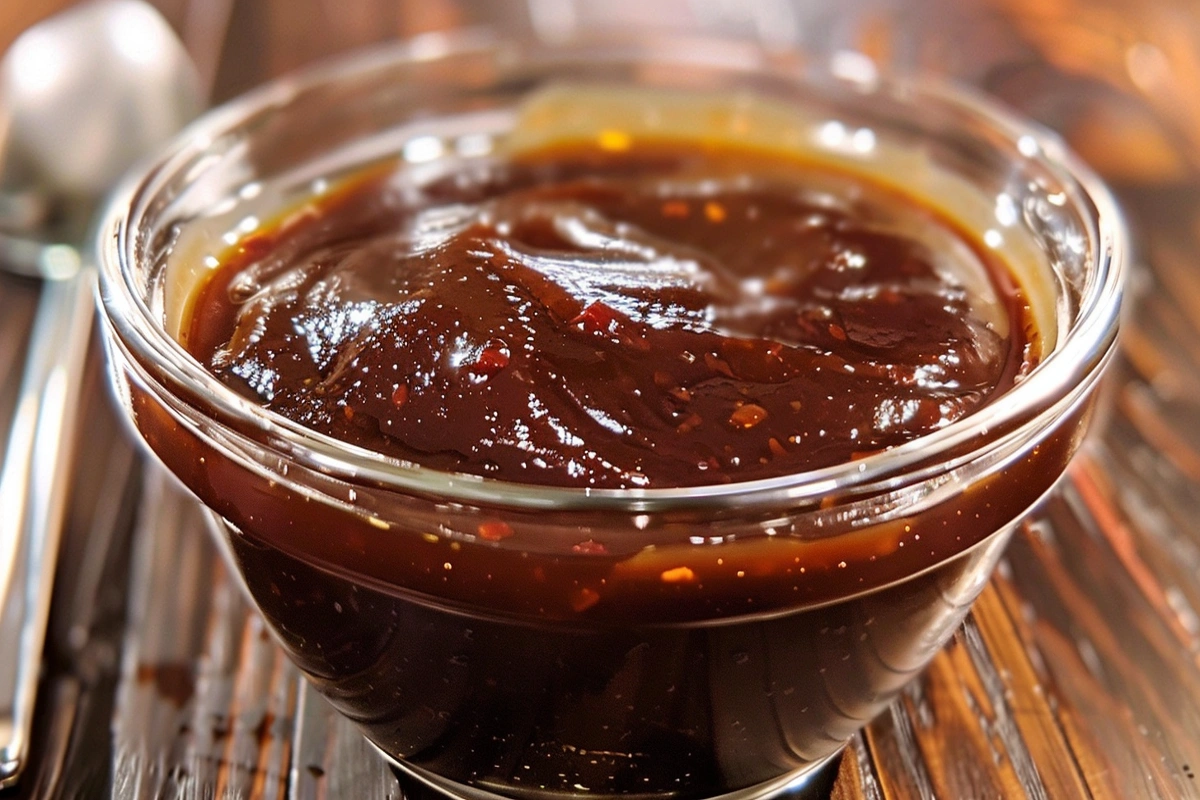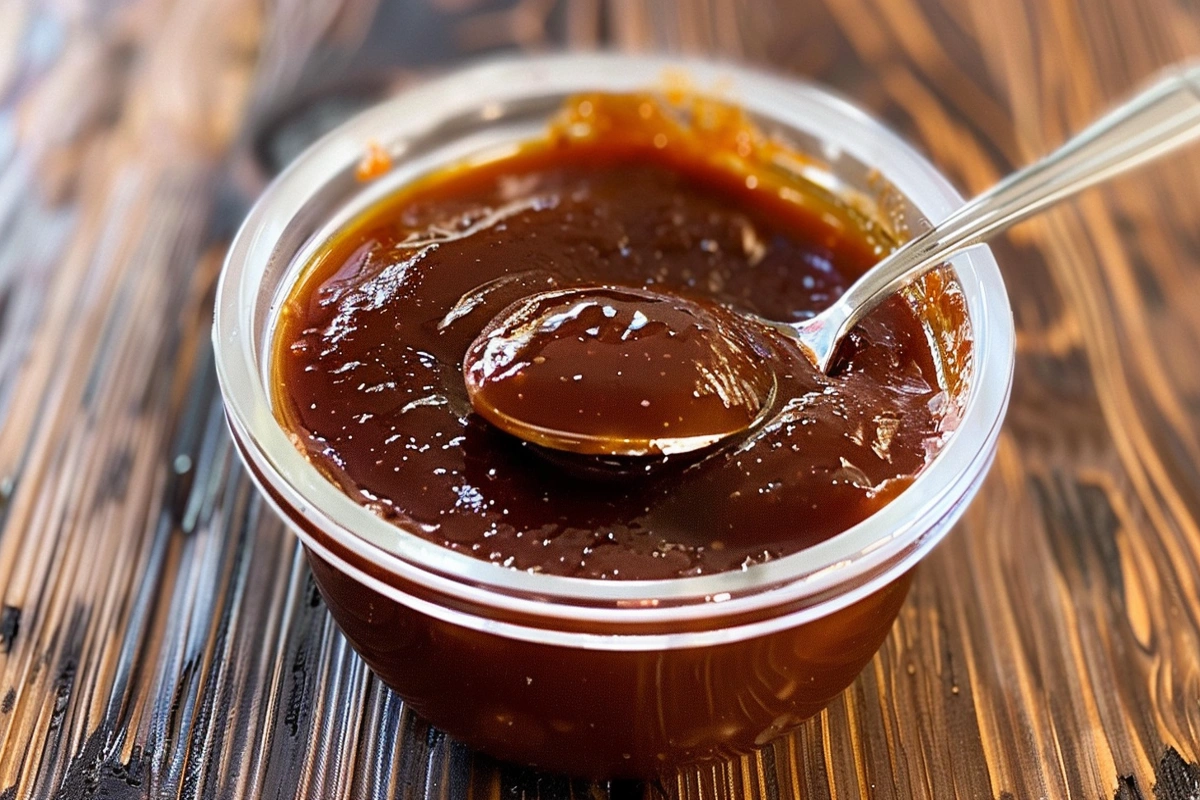Running out of barbecue sauce just when you’re about to enjoy a backyard grill session or roast up some meat can be frustrating, especially if barbecue flavors are the centerpiece of your dish. Maybe it’s the bold, smoky sweetness that you crave, or perhaps it’s that perfect balance of tangy and spicy that complements your grilled favorites. Whatever your preference, having barbecue sauce on hand can feel almost essential when preparing a meal. But here’s the good news—even if your barbecue sauce bottle is empty, there’s no need to panic or run to the store. A variety of ingredients already in your kitchen can be combined to replicate, or even improve upon, the signature flavor profiles of barbecue sauce.
In this extended guide, we’ll walk you through a diverse range of barbecue sauce alternatives that deliver the sweet, tangy, smoky, or spicy flavors you love. Whether you want to stick to pantry staples like ketchup and mustard, explore fruit-based glazes for a sweeter finish, or craft your own homemade sauces from scratch, you’ll find a solution that fits your needs. With just a little creativity and a willingness to experiment, you can enhance your dishes and maybe even stumble upon a new family favorite. Each substitute comes with specific use cases, pairing suggestions, and expert tips, ensuring that you won’t miss a beat the next time you’re ready to fire up the grill or roast in the oven.
Why Barbecue Sauce Is So Versatile
Barbecue sauce has a complex flavor profile that balances sweetness, acidity, spiciness, and smokiness. The combination of these elements makes it ideal for glazing, dipping, and marinating a wide variety of dishes. When substituting, it’s essential to consider these four components and ensure that the chosen alternative maintains this balance.
Different regions have unique barbecue styles, each with its own flavor profile. For example:
- Kansas City Style: Sweet and tangy, heavily tomato-based.
- Carolina Style: Mustard or vinegar-based, with a tangy, sometimes spicy kick.
- Texas Style: Bold, smoky, and peppery, often with minimal sweetness.
Understanding these regional differences can help you tailor your substitute to fit your desired flavor profile.
Tomato-Based Barbecue Sauce Substitutes

Tomato-based substitutes are among the most versatile options for replacing barbecue sauce. They replicate the rich, sweet, and acidic notes of traditional sauces, making them ideal for burgers, ribs, and grilled veggies.
1. Ketchup and Brown Sugar
This is a quick and easy substitute that works well when you need something fast. Simply mix equal parts ketchup and brown sugar. Add a splash of vinegar and a pinch of chili powder or smoked paprika to get a more barbecue-like flavor. This mixture works great as a glaze for meats like grilled chicken or pork chops.
Pairing Tips:
- This substitute is best for brushed glazes on chicken wings or thighs.
- Add a touch of Worcestershire sauce if you want a more savory depth.
2. Tomato Paste and Honey
For a more concentrated, tomato-rich substitute, combine tomato paste with honey and apple cider vinegar. This option is thicker and works well for spreading on sandwiches or as a dipping sauce. Adjust the sweetness and acidity by adding a splash of lemon juice or a bit of molasses.
Pairing Tips:
- Perfect for grilled sausages or as a topping for a meatloaf.
- Add a tablespoon of liquid smoke to give it a smoky undertone.
3. Marinara Sauce with Modifications
If you have marinara sauce on hand, it can easily be transformed into a barbecue-style condiment. Blend in Worcestershire sauce, mustard, and brown sugar. This mixture can be simmered for 10-15 minutes to reduce and thicken, giving it a deep, complex flavor.
Pairing Tips:
- Great for grilled vegetables or used as a pizza sauce alternative.
- Pair with meatloaf or burgers to enhance the dish.
4. Cocktail Sauce with Modifications
Cocktail sauce already has a tangy and slightly sweet profile, thanks to ketchup and horseradish. To make it more like barbecue sauce, add a tablespoon of brown sugar, a teaspoon of mustard, and a pinch of smoked paprika.
Pairing Tips:
- Works wonderfully on seafood, especially grilled shrimp.
- Use as a dipping sauce for fried or grilled fish.
Fruit-Based Barbecue Sauce Substitutes
Fruit-based substitutes bring a natural sweetness and complexity that can elevate your dish, especially for lighter meats like chicken or pork.
1. Peach or Apricot Jam
Blend peach or apricot jam with Dijon mustard and a pinch of red pepper flakes for a sweet-spicy glaze. The fruitiness enhances the meat’s natural flavors and creates a glossy finish.
Pairing Tips:
- Ideal for pork ribs or grilled chicken breast.
- Add soy sauce or Worcestershire sauce for a more savory twist.
2. Pineapple Juice Glaze
Pineapple juice is naturally sweet and acidic, making it a great base for a glaze. Combine it with soy sauce, brown sugar, and garlic to create a sweet, tangy glaze that pairs well with a variety of proteins.
Pairing Tips:
- Best with seafood like grilled salmon or shrimp skewers.
- Use as a glaze for chicken kebabs or pork chops.
3. Apple Butter and Molasses
Apple butter is thick and rich, making it an excellent base for a barbecue-style sauce. Combine it with molasses and a hint of cinnamon for a deep, complex flavor that works beautifully with pork.
Pairing Tips:
- Perfect for slow-cooked pulled pork or barbecue ribs.
- Can be used as a glaze for roasted ham.
Mustard-Based Barbecue Sauce Substitutes
For those who enjoy a tangier, sharper flavor, mustard-based substitutes can be an excellent choice.
1. Honey Mustard Mix
Combine equal parts honey and yellow mustard. Add a bit of garlic powder and cayenne pepper for an extra kick. This mixture works great as a glaze for lighter proteins or as a dipping sauce.
Pairing Tips:
- Ideal for grilled chicken tenders or pork chops.
- Works as a dipping sauce for vegetable skewers or fries.
2. Dijon Mustard and Worcestershire Sauce
For a more sophisticated, savory option, mix Dijon mustard with Worcestershire sauce and a teaspoon of brown sugar. This tangy and slightly sweet sauce pairs well with robust flavors.
Pairing Tips:
- Excellent on brisket or pulled beef sandwiches.
- Use as a spread for roast beef wraps or burgers.
Spicy and Tangy Barbecue Sauce Substitutes
If you like your barbecue with a bit of heat, these spicy substitutes will not disappoint.
1. Hot Sauce and Maple Syrup
Combine hot sauce with maple syrup to create a sweet-spicy blend that’s perfect for wings and ribs. Adjust the ratio depending on your heat tolerance.
Pairing Tips:
- Use for buffalo-style chicken wings.
- Drizzle over grilled tofu or tempeh for a vegan-friendly option.
2. Sriracha and Soy Sauce Mix
Blend Sriracha with soy sauce and a touch of honey for a spicy, umami-rich alternative. This sauce works well for marinating meats before grilling.
Pairing Tips:
- Great for grilled pork or beef skewers.
- Use as a dipping sauce for grilled dumplings or egg rolls.
3. Harissa and Honey
Harissa, a North African chili paste, has a complex, smoky flavor profile that can substitute barbecue sauce in spicy dishes. Mix with honey and a bit of lemon juice for a balanced heat-sweet blend.
Pairing Tips:
- Excellent for grilled lamb or eggplant.
- Use as a glaze for roasted vegetables.
Exploring International Barbecue Styles
Each cuisine has its own approach to barbecue, and understanding these styles can help you find the perfect substitute for your dish.
1. Asian-Inspired Glazes
Soy sauce, rice vinegar, and sesame oil are common bases for Asian glazes. Adding hoisin sauce, ginger, and garlic creates a deep, complex flavor. These glazes are ideal for chicken, pork, and beef.
Popular Asian Barbecue Sauces:
- Teriyaki Sauce: Sweet and tangy, pairs well with chicken and beef.
- Korean Gochujang Sauce: Spicy, sweet, and umami-rich, perfect for ribs or pork belly.
2. Italian-Inspired Sauces
In Italy, barbecue-style dishes often use balsamic vinegar and herb-based marinades. These sauces focus on highlighting the natural flavors of the meat without overpowering it.
Popular Italian Barbecue Sauces:
- Balsamic Glaze: Sweet, tangy, and complex, works well on chicken or steak.
- Pesto Sauce: An herb-based sauce that pairs well with grilled vegetables or shrimp.
Advanced Tips and Techniques for Barbecue Sauce Substitutes

1. Layering Flavors
When substituting barbecue sauce, consider layering flavors. Start with a base (like ketchup or mustard), add a sweetener (honey, brown sugar, or molasses), then include tangy elements (vinegar or citrus) and finish with spices (chili powder, garlic, or herbs).
2. Adjusting Consistency
If your substitute is too runny, thicken it with a spoonful of tomato paste, cornstarch slurry, or mashed fruit. If it’s too thick, thin it out with a splash of vinegar or water.
FAQs
Can I use steak sauce instead of barbecue sauce?
Yes, but steak sauce tends to be tangier and less sweet. Consider blending it with ketchup or honey to create a more balanced flavor.
Is there a low-sugar substitute for barbecue sauce?
Yes, you can use mustard, vinegar-based sauces, or make a homemade barbecue sauce using unsweetened applesauce as the base.
Can I use ranch dressing as a barbecue sauce substitute?
Ranch dressing can work as a dipping sauce but lacks the tangy and sweet flavors of barbecue sauce. Consider blending it with hot sauce or a bit of honey to create a balanced glaze.
Conclusion
Running out of barbecue sauce doesn’t have to ruin your meal. With these creative substitutes and advanced techniques, you can whip up something that matches or even surpasses the original. From tomato-based mixes to spicy and tangy alternatives, the possibilities are endless. So next time you’re out of barbecue sauce, don’t worry—experiment with these substitutes, and you might find a new favorite!
Enjoy your grilling and cooking sessions, and don’t hesitate to mix and match these ideas to create your own signature sauce!

